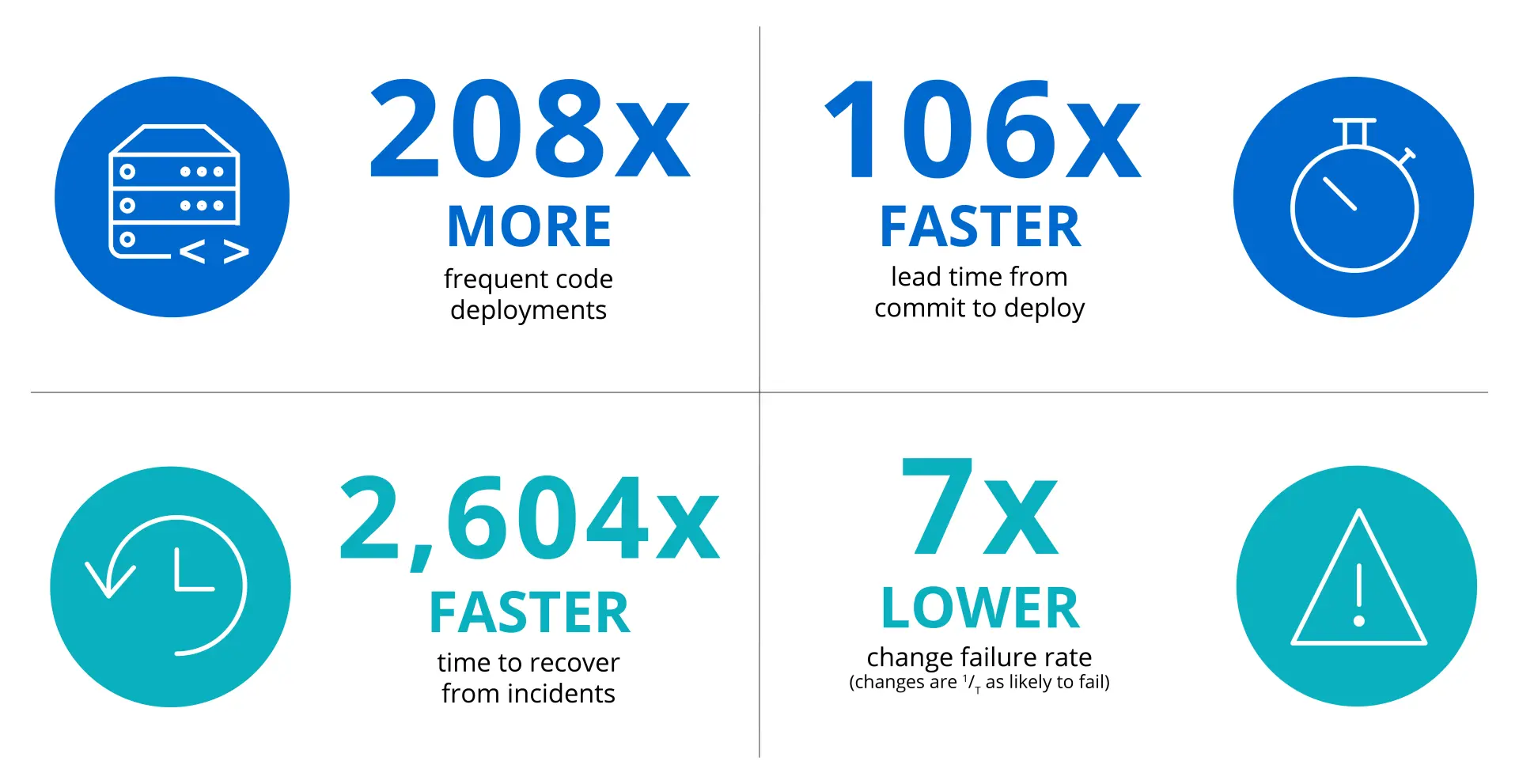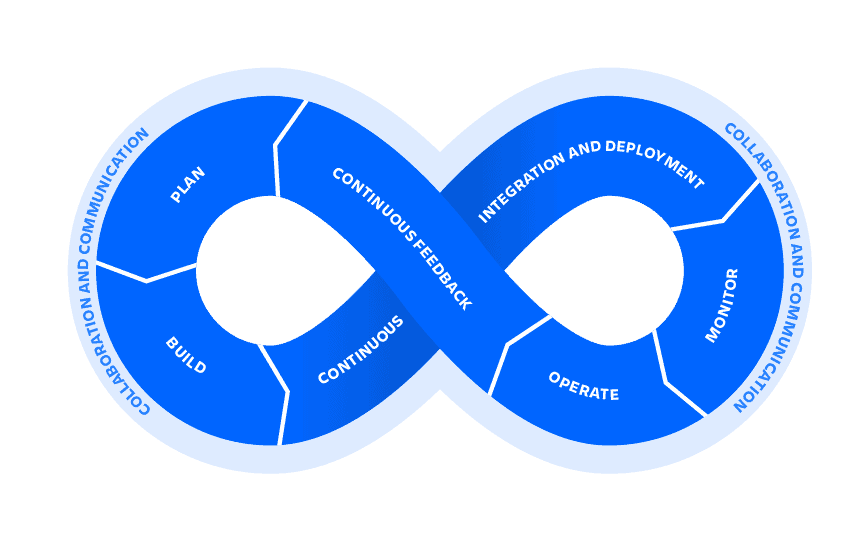DevOps
Work smarter and faster. And deliver high quality software.
DevOps is more than just development and operations teams working together. It’s more than tools and practices. DevOps is a mindset, a cultural shift, where teams adopt new ways of working – to continuously deliver higher-quality software with maximum speed, functionality, and innovation.
In today’s fast-paced, digital world, organizations need to ensure fast, continuous delivery and a consistently high level of software quality.
An approach to software that establishes close collaboration between software engineers and IT operations employees, DevOps can help you achieve this by automating and optimizing your IT processes.
Our expert DevOps engineers will help you attune the delivery, deployment, development, security, and support of any high-load, fail-safe system with microservices architecture — so your business strategy can always rely on high-quality software.
How DevOps can help you.

Technical Benefits
- Continuous software delivery
- Less complexity to manage
- Faster resolution of problems
Cultural Benefits
- Happier, more productive teams
- Higher employee engagement
- Greater professional development opportunities
Business Benefits
- Faster release of applications, features, and services
- More stable operating environments
- Improved communication and collaboration
- More time to innovate (rather than fix/maintain)
What does success look like with DevOps

Companies that incorporate DevOps practices get more done, plain and simple. A DevOps culture means developers get closer to the user by gaining a better understanding of user requirements and needs. Operations teams get involved in the development process and add maintenance requirements and customer needs. It means adhering to the following key principles that help DevOps teams deliver applications and services at a faster pace and higher quality than organizations using the traditional software development model. Organizations that practice DevOps ship better work faster, streamline incident responses, and improve collaboration and communication across teams.
Improved collaboration and communication across teams.
Building a culture of shared responsibility, transparency, and faster feedback is the foundation of every high-performing DevOps team. In fact, collaboration and problem-solving ranked as the most important elements of a successful DevOps culture, according to our 2020 DevOps Trends survey.
Teams that work in silos often don’t adhere to the systems thinking DevOps espouses. Systems thinking is being aware of how your actions not only affect your team, but all the other teams involved in the release process. Lack of visibility and shared goals means lack of dependency planning, misaligned priorities, finger pointing, and “not our problem” mentality, resulting in slower velocity and substandard quality. DevOps is that change in mindset of looking at the development process holistically and breaking down the barrier between development and operations.
Release faster and work smarter.
Speed is everything. Teams that practice DevOps release deliverables more frequently, with higher quality and stability. In fact, the DORA “2019 State of DevOps” report found that elite teams deploy 208 times more frequently and 106 times faster than low-performing teams.
A lack of automated test and review cycles slow the release to production, while poor incident response time kills velocity and team confidence. Disparate tools and processes increase operating costs, lead to context switching, and can slow down momentum. Yet with tools that drive automation and new processes, teams can increase productivity and release more frequently with fewer hiccups.
Accelerate time-to-resolution
The team with the fastest feedback loop is the team that thrives. Full transparency and seamless communication enable DevOps teams to minimize downtime and resolve issues faster.
If critical issues aren’t resolved quickly, customer satisfaction tanks. Key issues slip through the cracks in the absence of open communication, resulting in increased tension and frustration among teams. Open communication helps development and operations teams swarm on issues, fix incidents, and unblock the release pipeline faster.
Streamline incident response
Unplanned work is a reality that every team faces–a reality that most often impacts team productivity. With established processes and clear prioritization, development and operations teams can better manage unplanned work while continuing to focus on planned work.
Transitioning and prioritizing unplanned work across different teams and systems is inefficient and distracts from work at hand. However, through raised visibility and proactive retrospection, teams can better anticipate and share unplanned work.
Teams who fully embrace DevOps practices work smarter and faster, and deliver better quality to their customers. The increased use of automation and cross-functional collaboration reduces complexity and errors, which in turn improves the Mean Time to Recovery (MTTR) when incidents and outages occur.
Cloud platforms
Transform your business by moving your IT infrastructure, CRM or ERP to the cloud and leverage SaaS to drive better performance. We have strong partnerships with the world’s top technology providers, and decade-long experience building industry-specific solutions on top of leading cloud platforms.




Connect with Nuvem Group
Looking to shift to a cloud-first core and enable digital agility? Nuvem Group is a dedicated partner in cloud transformation, helping companies harness the power of cloud to create delightful experiences, open new avenues of collaboration, and optimize their value chain to generate more profit and growth.

